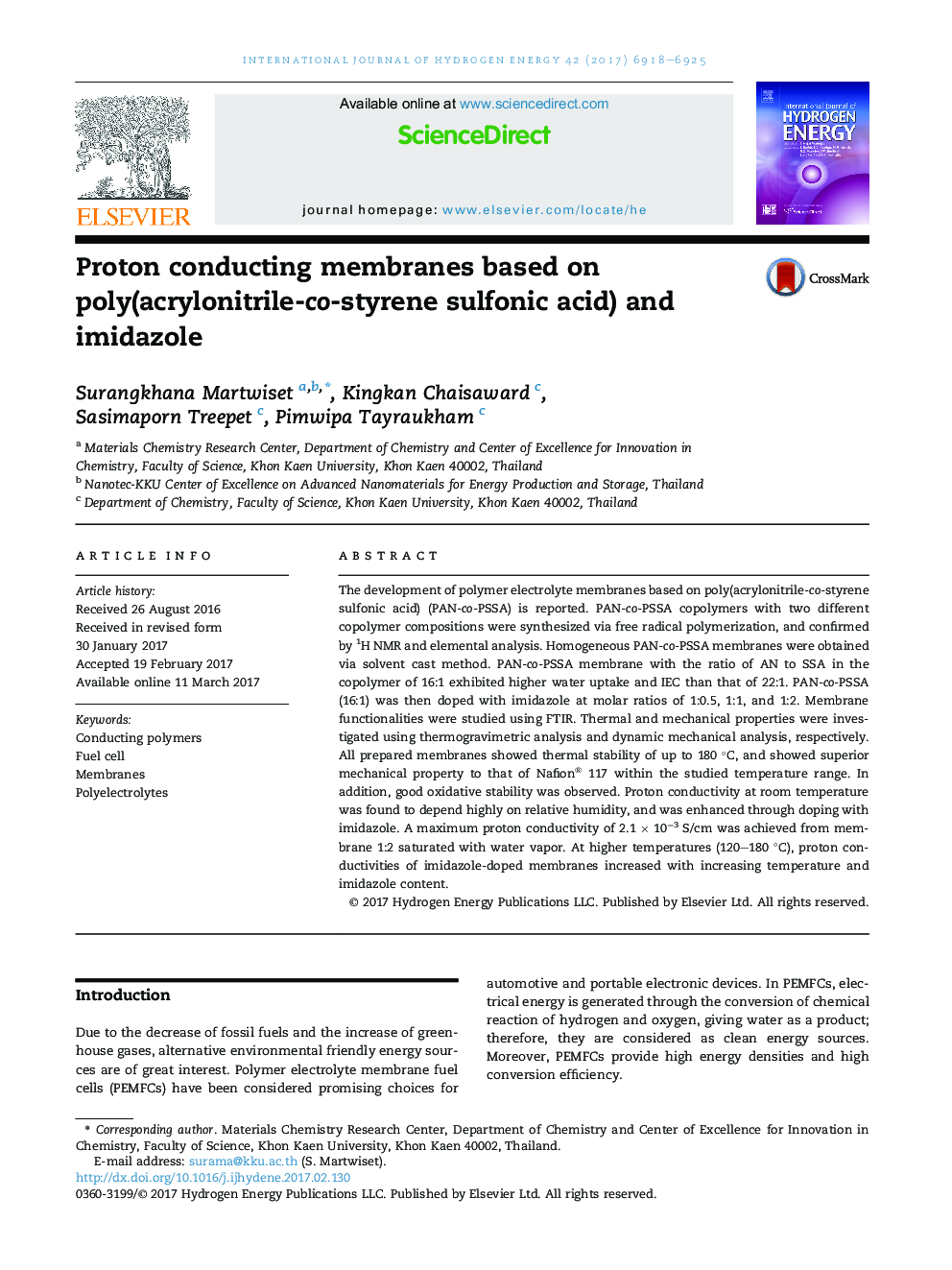| Article ID | Journal | Published Year | Pages | File Type |
|---|---|---|---|---|
| 5146131 | International Journal of Hydrogen Energy | 2017 | 8 Pages |
â¢PAN-co-PSSA with various copolymer compositions were synthesized.â¢Imidazole-doped PAN-co-PSSA showed thermal, mechanical and oxidative stabilities.â¢Proton conductivity at room temperature depended highly on relative humidity.â¢Without humidifying, conductivity increased with temperature and imidazole content.
The development of polymer electrolyte membranes based on poly(acrylonitrile-co-styrene sulfonic acid) (PAN-co-PSSA) is reported. PAN-co-PSSA copolymers with two different copolymer compositions were synthesized via free radical polymerization, and confirmed by 1H NMR and elemental analysis. Homogeneous PAN-co-PSSA membranes were obtained via solvent cast method. PAN-co-PSSA membrane with the ratio of AN to SSA in the copolymer of 16:1 exhibited higher water uptake and IEC than that of 22:1. PAN-co-PSSA (16:1) was then doped with imidazole at molar ratios of 1:0.5, 1:1, and 1:2. Membrane functionalities were studied using FTIR. Thermal and mechanical properties were investigated using thermogravimetric analysis and dynamic mechanical analysis, respectively. All prepared membranes showed thermal stability of up to 180 °C, and showed superior mechanical property to that of Nafion® 117 within the studied temperature range. In addition, good oxidative stability was observed. Proton conductivity at room temperature was found to depend highly on relative humidity, and was enhanced through doping with imidazole. A maximum proton conductivity of 2.1 Ã 10â3 S/cm was achieved from membrane 1:2 saturated with water vapor. At higher temperatures (120-180 °C), proton conductivities of imidazole-doped membranes increased with increasing temperature and imidazole content.
